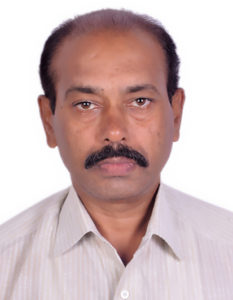Human Rights & Anti Corruption Force is an NGO which is involved in bringing Human Rights Awareness among the general public. Further, they are also engaged in raising voice against corruption.
About our Mentor :
 Our Mentor & Karnataka State President Dr. V. Munikrishna is a well known human rights activist with more than two decades of vast experience and knowledge in the field of Human Rights activities.
Our Mentor & Karnataka State President Dr. V. Munikrishna is a well known human rights activist with more than two decades of vast experience and knowledge in the field of Human Rights activities.
He is involved in various social works which includes providing affordable and free education for children of poor citizens, organizing blood donation camps for both rural and urban population. He is very well known to Bangaloreans for bringing awareness about human rights. He is also very active in raising voice against corruption.
About Human Rights :
Human rights are moral principles or norms that describe certain standards of human behaviour and are regularly protected as natural and legal rights in municipal and international law. They are commonly understood as inalienable, fundamental rights “to which a person is inherently entitled simply because she or he is a human being” and which are “inherent in all human beings”, regardless of their nation, location, language, religion, ethnic origin or any other status. They are applicable everywhere and at every time in the sense of being universal, and they are egalitarian in the sense of being the same for everyone. They are regarded as requiring empathy and the rule of law and imposing an obligation on persons to respect the human rights of others, and it is generally considered that they should not be taken away except as a result of due process based on specific circumstances; for example, human rights may include freedom from unlawful imprisonment, torture and execution.
Some thinkers suggest that human rights should be a minimum requirement to avoid the worst-case abuses, while others see it as a higher standard. In the light of emerging neurotechnologies, four new rights were identified: the right to cognitive liberty, the right to mental privacy, the right to mental integrity, and the right to psychological continuity.
Many of the basic ideas that animated the human rights movement developed in the aftermath of the Second World War and the events of the Holocaust, culminating in the adoption of the Universal Declaration of Human Rights in Paris by the United Nations General Assembly in 1948.
The World Wars, and the huge losses of life and gross abuses of human rights that took place during them, were a driving force behind the development of modern human rights instruments.
About Corruption in India
Corruption is an issue that adversely affects India’s economy of central, state and local government agencies. Not only has it held the economy back from reaching new heights, but rampant corruption has stunted the country’s development. A study conducted by Transparency International in 2005 recorded that more than 92% of Indians had at some point or another paid a bribe to a public official to get a job done. In a study conducted in 2008, Transparency International reported that about 50% of Indians had first hand experience of paying bribes or using contacts to get services performed by public offices.
Transparency International’s 2017 Corruption Perception Index ranks the country 81st place out of 180 countries
The causes of corruption in India include excessive regulations, complicated tax and licensing systems, numerous government departments with opaque bureaucracy and discretionary powers, monopoly of government controlled institutions on certain goods and services delivery, and the lack of transparent laws and processes.